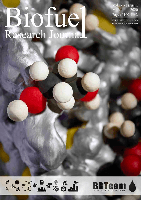
Biofuel Research Journal-BRJ
Scope & Guideline
Fueling knowledge for a sustainable energy landscape.
Introduction
Aims and Scopes
- Sustainable Biofuel Production:
Focuses on the development of sustainable methods for producing biofuels from various feedstocks, including agricultural waste, lignocellulosic biomass, and microalgae. - Advanced Catalytic Processes:
Explores the optimization of catalytic processes for biofuel production, including the use of novel catalysts and methodologies to enhance yield and efficiency. - Life Cycle Assessment and Sustainability:
Analyzes the environmental impact of biofuel production processes through life cycle assessments (LCA), emphasizing sustainability metrics and carbon footprint reduction. - Biorefinery Technologies:
Investigates integrated biorefinery systems that convert biomass into biofuels and high-value bioproducts, focusing on efficiency and economic viability. - Emerging Technologies and Innovations:
Covers the application of cutting-edge technologies such as machine learning, nanomaterials, and synthetic biology in the field of biofuels.
Trending and Emerging
- Integration of Machine Learning:
An increasing number of studies are employing machine learning algorithms to optimize biofuel production processes, indicating a trend towards data-driven approaches in the field. - Valorization of Waste Materials:
Research focusing on the upcycling of urban and agricultural waste into biofuels and bioproducts is gaining momentum, reflecting a growing interest in circular economy principles. - Microbial and Enzymatic Innovations:
There is a notable rise in studies exploring microbial consortia and enzymatic processes for biofuel production, underscoring the potential of biological systems in enhancing efficiency. - Climate Change Adaptation Strategies:
Emerging research is concentrating on how biofuel production systems can be adapted to mitigate the impacts of climate change, highlighting the importance of resilience in agricultural systems. - Nanotechnology Applications:
The application of nanotechnology in biofuel production, particularly in catalyst development and biofuel enhancement, is an increasingly popular area of research.
Declining or Waning
- Traditional Biomass Valorization Techniques:
Research on conventional methods for biomass conversion, such as simple combustion or fermentation processes, is less prominent as newer, more efficient technologies gain traction. - Focus on Fossil Fuel Comparisons:
Studies that primarily compare biofuels to fossil fuels without addressing sustainability or innovative technologies are becoming less common as the field shifts toward holistic sustainability assessments. - Single Feedstock Studies:
Research concentrating on a single type of biomass feedstock is decreasing in favor of multi-feedstock approaches that evaluate the versatility and adaptability of biorefineries.
Similar Journals

International Journal of Energy and Environmental Engineering
Advancing Knowledge at the Intersection of Energy and EnvironmentInternational Journal of Energy and Environmental Engineering, published by SPRINGER HEIDELBERG, is a leading platform for innovative research in the fields of energy and environmental engineering. With an ISSN of 2008-9163 and an E-ISSN of 2251-6832, this journal is dedicated to advancing knowledge and technology that intersects both energy and environmental disciplines. Recognized in the Q2 category for 2023 in both Energy (miscellaneous) and Environmental Engineering, this interdisciplinary journal aims to address global challenges in energy sustainability and environmental protection. The journal also boasts strong Scopus rankings, standing at Rank #73 in Environmental Science and Rank #28 in General Energy, highlighting its influential role within the academic community. Researchers, professionals, and students are encouraged to contribute and engage with cutting-edge studies that push the boundaries of knowledge and innovation in energy and environmental engineering.
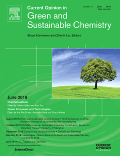
Current Opinion in Green and Sustainable Chemistry
Elevating Perspectives on Green and Sustainable ChemistryCurrent Opinion in Green and Sustainable Chemistry, published by Elsevier, is a premier journal dedicated to exploring the rapidly evolving field of green and sustainable practices in chemistry. With an impressive Q1 ranking in multiple categories, including Catalysis, Process Chemistry and Technology, and Waste Management, this journal plays a pivotal role in disseminating innovative research by providing critical insights into sustainable methodologies and their implementation across various industries. The journal aims to gather leading perspectives from experts to facilitate knowledge exchange that drives the global transition towards more sustainable chemical practices. Based in the Netherlands, Current Opinion in Green and Sustainable Chemistry emphasizes high impact, evidenced by its Scopus ranks, notably achieving the 10th percentile in Environmental Science Management, making it indispensable for researchers and professionals keen on advancing sustainable chemistry solutions. This journal offers a blend of open access articles and subscription-based content, ensuring a wide reach and engagement with its audience.
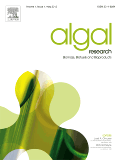
Algal Research-Biomass Biofuels and Bioproducts
Transforming algae into tomorrow's sustainable solutions.Algal Research - Biomass Biofuels and Bioproducts is a prestigious academic journal published by Elsevier, dedicated to advancing the field of algal biotechnology and its applications in biomass, biofuels, and bioproducts. With an ISSN of 2211-9264 and a notable impact factor, this journal is recognized as a leading source of innovative research, boasting a current Scopus rank of #31 out of 406 in the domain of Agricultural and Biological Sciences, specifically Agronomy and Crop Science, positioning it in the top 8% of its field (92nd percentile). This open-access publication, established in 2012 and covering literature up to 2024, prioritizes disseminating high-quality research that fosters sustainable solutions for energy and bioproducts derived from algal resources. As a Q1 ranked journal in the 2023 Agronomy and Crop Science category, it serves as a vital resource for researchers, professionals, and students seeking to understand and leverage the potential of algae within the biodiverse framework of bioeconomy and sustainable practices.

Advances in Energy Research
Empowering Sustainable Solutions for Tomorrow's Energy Landscape.Advances in Energy Research is a prominent journal dedicated to the exploration and advancement of energy technologies and sustainable practices. Published by TECHNO-PRESS, this journal serves as a vital platform for researchers, professionals, and students in the energy field, featuring innovative studies and reviews that contribute to the body of knowledge surrounding energy efficiency, renewable resources, and the integration of new technologies. The journal holds a significant position in energy research and aims to facilitate the dissemination of groundbreaking findings and ideas that are pivotal for the transition toward a more sustainable energy future. Located in South Korea, with an ISSN of 2287-6316, it embraces an open access philosophy that ensures widespread availability of its content, further enhancing its impact in the academic community.

Green Chemical Engineering
Pioneering research at the intersection of chemistry and ecology.Green Chemical Engineering, an esteemed journal published by KEAI PUBLISHING LTD, plays a pivotal role in advancing the field of sustainable chemical engineering. With an Open Access policy since 2020, this journal facilitates the free exchange of cutting-edge research and innovations that address critical environmental challenges. Based in China, it has rapidly gained recognition with impressive category quartiles, ranking Q1 in numerous relevant fields including Catalysis, Chemical Engineering (miscellaneous), Filtration and Separation, and Process Chemistry and Technology. Its presence in Scopus highlights its significance, with top rankings (e.g., Rank #4/19 in Filtration and Separation) placing it in the upper echelons of chemical engineering literature. Designed for researchers, professionals, and students alike, Green Chemical Engineering aims to foster a collaborative platform for the dissemination of pioneering work that contributes to a greener and more sustainable future.

Chemical Engineering Journal Advances
Transforming Ideas into Impactful Research in Chemical Engineering.Chemical Engineering Journal Advances, published by Elsevier, is a premier open-access journal dedicated to advancing research and innovation in the field of chemical engineering. With its inception in 2020, the journal has quickly established itself as a key player in disseminating high-quality, peer-reviewed articles, boasting an impressive Q1 ranking in Chemical Engineering and related disciplines for 2023. The journal covers a broad spectrum of topics, including industrial processes, environmental chemistry, and innovative manufacturing techniques, making it essential reading for researchers and professionals aiming to stay at the forefront of chemical engineering advancements. With its commitment to open access, Chemical Engineering Journal Advances ensures that groundbreaking research is readily available to the global scientific community, fostering collaboration and knowledge exchange. Situated in the Netherlands, the journal supports its authors with a robust platform for impactful research dissemination, highlighted by a solid position in the Scopus ranks, indicating its influence and relevance in the field.
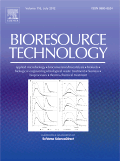
BIORESOURCE TECHNOLOGY
Driving Innovation in Waste Management and Renewable EnergyBioresource Technology, published by Elsevier Science Ltd, is a leading journal in the fields of bioengineering, environmental engineering, and sustainable resource management. With an impressive impact factor reflected in its Q1 rankings for 2023 across multiple relevant categories, it stands out as a premier source for groundbreaking research from its inception in 1991 to its anticipated contributions through 2024. Bioresource Technology promotes the advancement of technologies and methodologies aimed at the sustainable utilization of biological resources, playing a pivotal role in tackling the challenges of waste management, renewable energy, and environmental protection. Researchers and practitioners are encouraged to contribute and engage with high-quality studies that have significant implications for the global push towards sustainability and innovation. Although the journal does not currently offer Open Access, its subscription model ensures that the rigorous peer-reviewed content remains accessible to those dedicated to advancing the field.

Engineering Review
Connecting researchers for impactful engineering solutions.Engineering Review is a prominent academic journal published by the University of Rijeka, Faculty of Engineering in Croatia. As an emerging outlet in the field of engineering, the journal has been providing a platform for interdisciplinary research since its inception in 2011, with a commitment to disseminating high-quality studies up to the horizon of 2024. Although currently categorized as Q4 in the Engineering (miscellaneous) section and ranking 242 out of 307 in General Engineering per Scopus metrics, the journal aims to bolster its impact and reach within the engineering community. With a focus on innovative approaches and practical applications in various engineering disciplines, Engineering Review invites contributions from researchers, professionals, and students alike, fostering a collaborative environment for the advancement of engineering research in a global context. While it is not an open-access journal at this time, it remains a vital resource for those engaged in cutting-edge engineering endeavors.

BioEnergy Research
Transforming Research into Actionable InsightsBioEnergy Research is a premier journal published by SPRINGER, dedicated to advancing the field of bioenergy through rigorous scholarship and innovative research. Since its inception in 2009, the journal has emerged as a vital resource for academics, industry professionals, and policymakers involved in the production and utilization of biofuels and other renewable energy sources. With an impressive HIndex and a commitment to quality, it has achieved Q1 status in Agronomy and Crop Science and Q2 rankings in both Energy (miscellaneous) and Renewable Energy, Sustainability and the Environment as of 2023. This positions BioEnergy Research among the top-tier publications in these interconnected fields, offering a platform for disseminating groundbreaking research, practical applications, and critical reviews. Although not open access, the journal's content remains accessible to a broader audience, making it an essential tool for driving the global transition towards sustainable energy solutions. Explore issues spanning from fundamental research to applied methodologies, and contribute to the dialogue on how bioenergy can meet the challenges of a dynamic environmental landscape.
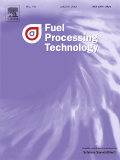
FUEL PROCESSING TECHNOLOGY
Transforming energy challenges into sustainable solutions.FUEL PROCESSING TECHNOLOGY, published by Elsevier, is a highly regarded scholarly journal dedicated to advancing the field of fuel processing and technology. With an impressive Q1 ranking in major categories such as Chemical Engineering, Energy Engineering, and Fuel Technology, this journal serves as a vital resource for researchers, professionals, and students alike, offering cutting-edge research and comprehensive reviews since its inception in 1977. Boasting a Scopus ranking that places it within the top 10% of its field, FUEL PROCESSING TECHNOLOGY is committed to disseminating innovative findings and methodologies that are crucial for the development of sustainable fuel technologies. In line with its commitment to accessibility, the journal will transition to Open Access status starting in 2024, thereby broadening the reach and impact of valuable research. Located in Amsterdam, Netherlands, the journal is strategically positioned to foster global collaboration and dialogue, making it an essential platform for scholars dedicated to the critical challenges in energy and environmental sustainability.